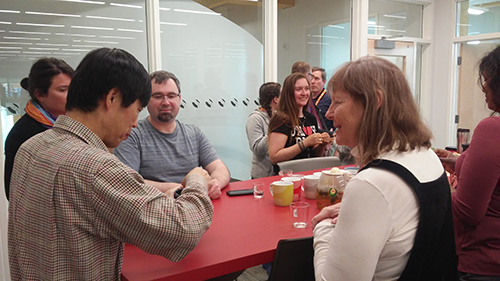- FROM THE TOP
- The POLAR XPRESS has a New Look!
- Reducing our Energy Consumption at the Office
- POLAR is in the News!
- Get Ready to Have Your Say!
- POLAR’S PEOPLE
- POLAR Welcomes Japanese Delegation at the CHARS Campus
- Nunavut Celebrates 20 Years as a Territory
- High-Altitude Presentation by Boeing and RIC Enterprises
- LEARNING AND PERFORMANCE
- Inuinnaqtun Word of the Week - Muqpauyaqturit - ᒧᖅᐸᐅᔭᖅᑐᕆᑦ
- Are you ready to Talk the Talk?
- WORKPLACE NOTICES
- Canada’s National Service Call Centre
- Information Management Tip of the Week
- UPDATES
- POLAR Events Calendar
- SOCIAL MEDIA HIGHLIGHTS
- Lots Happening on POLAR’s Social Media Channels
FROM THE TOP
The POLAR XPRESS has a New Look!
If the POLAR XPRESS looks a little different today, it’s because we’ve given it a little makeover. It has the same sections, but with a fresher and edgier look!
Happy reading!
Reducing our Energy Consumption at the Office
With sunny days and elevated summertime temperatures comes an increase in energy consumption. As federal employees, it is important to work together to conserve energy at home and at the office. In reducing energy usage, you can protect the environment by reducing greenhouse gas emissions and save money by reducing operating costs!
Here are a few simple tips from Public Services and Procurement Canada to help you conserve energy:
- Shut off lights, computers and office equipment when they are not in use, and at the end of the work day;
- Avoid large photocopying jobs or the use of large office equipment between the peak hours of 3:00 p.m. and 7:00 p.m.;
- Ensure that when you go on summer vacation, all electrical devices in your office are turned off in your absence;
- Close window blinds to shade your workspace from direct sunlight;
- Take the stairs instead of the elevator when possible;
- Keep outside doors closed to keep cool air inside the building;
- Dress comfortably for your particular work area.
For more information on what you can do to reduce energy consumption at work, or at home, please visit the Natural Resources Canada’s Office of Energy Efficiency web site at http://www.nrcan.gc.ca/energy/efficiency.
POLAR is in the News!
POLAR and the CHARS campus are featured in an article in the July/August edition of Up Here magazine. The article highlights our state-of-the-art facilities at the CHARS campus and how we integrate Indigenous knowledge in our research projects.
“It’s not enough just to add traditional knowledge. The research is done together. And when you have the data done, you work together to interpret it. At every stage, you work shoulder to shoulder. That’s not just making a better research project, it’s also a respectful way of doing research. It’s reconciliation in action,” said Martin Raillard.
You can access the full article here: https://uphere.ca/node/2672
Get Ready to Have Your Say!
The next Public Service Employee Survey (PSES) will be conducted from July 22 to August 30, 2019. Find out why the federal government conducts surveys, who can participate, and how to fill out a survey by clicking here. You will also find out how your confidentiality is protected, what will happen to the results and what to do if you are raring to fill out a survey and have not received a link from Advanis, the survey administrator.
Get ready to have your say about improving workplace practices at POLAR: better people management practices lead to better results for the public service, and in turn, better results for Canadians.
POLAR’S PEOPLE
POLAR Welcomes Japanese Delegation at the CHARS Campus
At the beginning of July, POLAR hosted Japan's National Institute of Polar Research (NIPR) at the CHARS campus for a two-day workshop on arctic environment. The NIPR was seeking to increase collaboration with Inuit and Canadian scientists to further research in the Arctic and understanding of the impacts of climate change.
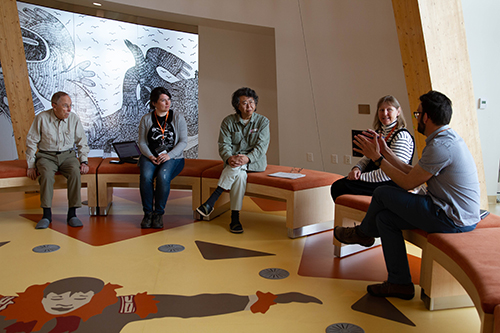
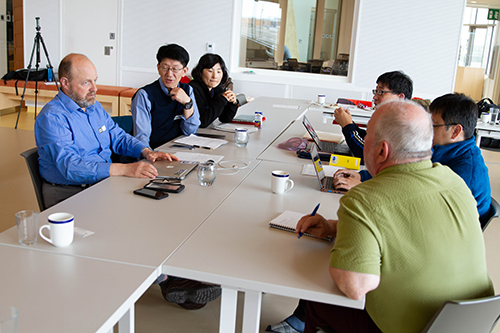
During this workshop, POLAR and its Japanese partners exchanged information of on-going and future research projects around Cambridge Bay. These projects are currently being planned by Japanese researchers in collaboration with Canadian counterparts and local stakeholders.
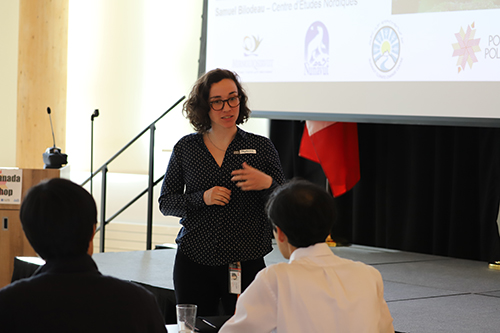
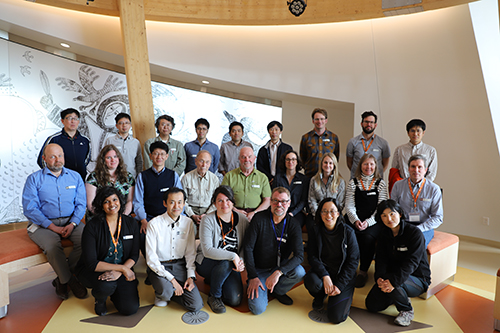
POLAR looks forward to advancing project-specific collaborations with Japanese researchers, and will continue to work together through the Canada–Japan Joint Committee on Science and Technology.
Click here to read CBC North’s media coverage on the workshop.
Nunavut Celebrates 20 Years as a Territory
On July 9, our colleague Lynda attended the Nunavut Day celebrations in Kugluktuk. Crown-Indigenous Relations Minister Caroline Bennett was also in attendance, along with MLA, Jeannie Ehaloak and Nunavut Tunngavik Inc. President Aluki Kotierk.
“I loved seeing all the Elders out in their best parkas and ceremonial clothing, singing their ayaa songs and dancing to the drum”, said Lynda. “Everyone was so happy for Nunavut and coming together in such a happy way for the community and for Nunavut – there was a real feeling of celebration.”
Activities included a tea boiling contest, bannock-baking and traditional skills like best seal-skinning and best char filleting and pfifi making contests.
Lynda really enjoyed watching Jayco (a local community member) and how he made his bannock, using his family’s traditional ways by using seal blubber, then puncturing it with a little stick to fry the bannock in, instead of using Tenderflake lard. “Mostly, I enjoyed eating it when he offered some to me…mmm good!” said Lynda.
Cambridge Bay also celebrated in style with activities such as harpoon throwing, a fishing contest, a community barbecue, a cake decorating contest, and more.
Christine Evans snapped a picture of the very popular cookies provided at the event!

High-Altitude Presentation by Boeing and RIC Enterprises
Mithra Sankrithi, Boeing’s Senior Manager, and President and CEO of RIC Enterprises located in Washington State, was at the CHARS campus last month to talk about an innovative wind-power generation system for cold climates.
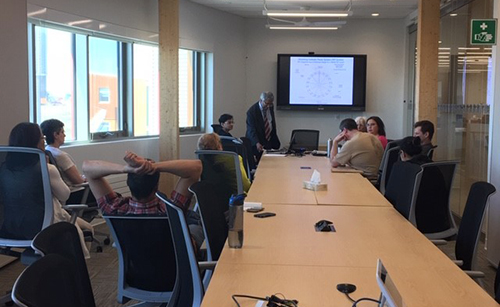
Inspired by racing iceboats, this new class of practical Arctic wind energy systems aims to capture wind energy over snow and ice covered surfaces.
The design concept is based on the same principles that iceboats (below) use to move. Picture 10 or more of these rotating around a central turbine, and you'll have a rough idea!
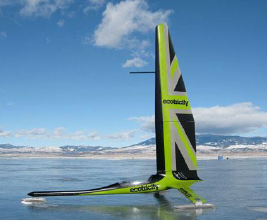
LEARNING AND PERFORMANCE
Inuinnaqtun Word of the Week - Muqpauyaqturit - ᒧᖅᐸᐅᔭᖅᑐᕆᑦ
The Inuinnaqtun word of the week is “muqpauyaqturit”. It means “Come eat some bannock”.
It is pronounced: mooq-pa-oo-yaq-too-reet
Listen to the pronunciation here.
Are you ready to Talk the Talk?
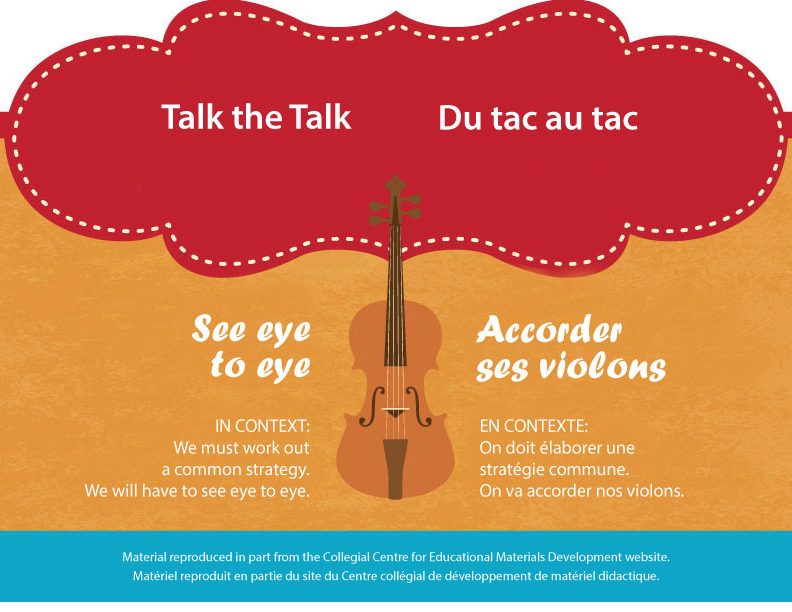
WORKPLACE NOTICES
Canada’s National Service Call Centre
Did you know? The National Service Call Centre (NSCC) can handle a variety of workplace maintenance requests including:
- Electrical distribution and lighting
- Heating ventilation and air conditioning (HVAC)
- Plumbing
- Cleaning services
- Waste removal and recycling
- Elevator issues including entrapment
- Grounds maintenance
- Security/Alarm response
- Fire and safety systems
The NSCC‘s main information can be found here and can be reached by phone at 1-800-463-1850 or through an E-request.
Information Management Tip of the Week
Transitory records consist of records of temporary usefulness that are not an integral part of an administrative or operational record series, not regularly filed with standards records or filing systems, and are only required for a limited period of time for the completion of a routine action or the preparation of an ongoing record.
These records are either copies of information retained elsewhere or records that will not be required as evidence of government’s business activities.
Transitory records may be disposed of when they are no longer of value, and shall only be disposed of through means which render them unreadable, including secure shredding, or in the case of electronic records, secure electronic erasure.
Disposing of transitory records in a timely manner facilitates efficient use of resources as storage and management requirements for these records is minimized. This does not require authorization from Library and Archives Canada. If in doubt whether to keep or dispose of transitory records, please contact Renee.Bergeron@polar.gc.ca.
The following are examples of documents that could be considered transitory:
- Copy of a report of a government record available in an alternate location and format
- Extra copies of meeting agendas and minutes
- Electronic version of a signed document, where it has been determined that the signed version is the record to be kept and managed
- Drafts of records:
- Which reflect content that is included in the final version of the record
- Which contain only minor edits to content or formatting changes
- Supporting information used in the preparation of a subsequent record:
- Working papers, notes and research deemed to be inconsequential
- Records not directly related to you or your office that do not require you to act:
- E-mails on which you are in the “cc” line only – once you determine you no longer need to retain “cc’s” you may delete them
- Transmittal or routing slips and opened envelopes:
- A physical routing slip or an e-mail that is used to route an attached document – “see attached” emails
- E-mail read receipts or failure receipts
- Broadcast messages sent to all employees:
- Invitation sent to all employees, public service notices (PSN) e-mail messages
- Notice of renovations and employee opportunities
- Introductions of new employees
- Publications produced for mass distribution:
- Catalogues, periodicals, pamphlets and newsletters
For more information on Transitory Records, please contact Renee.Bergeron@polar.ca
UPDATES
POLAR Events Calendar
You will find below the latest version of the POLAR events calendar, including upcoming events and conferences for your information.
Note: The calendar is subject to change. Any travel has to be pre-approved by Directors (and above for international destinations).
Please send any calendar updates or additions to Jerry Kallada at jerry.kallada@polar.gc.ca
POLAR events calendar: July 17, 2019
SOCIAL MEDIA HIGHLIGHTS
Lots Happening on POLAR’s Social Media Channels
Check out some of POLAR’s latest social media posts:

- POLAR hosts the Canada-Japan Workshop at the CHARS campus
- Ecosystems mapping field team preps for work in Kugluktuk

- The POLAR Update newsletter for Summer 2019 is here!
- POLAR’s Nunavut Day message for the territory’s 20th anniversary

- Matilde Tomaselli co-authors an article on muskox populations
- Various administrative assistant opportunities at POLAR in Cambridge Bay
